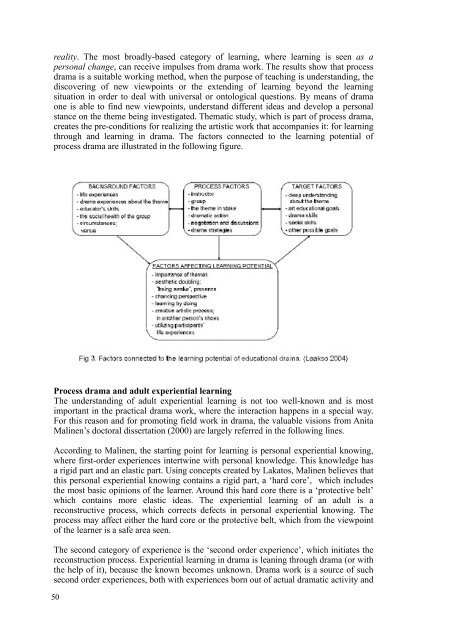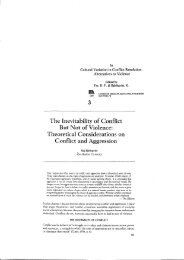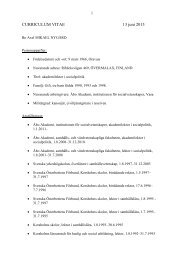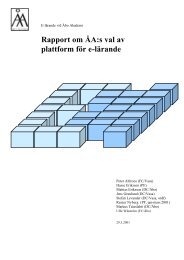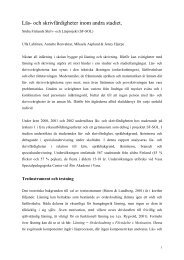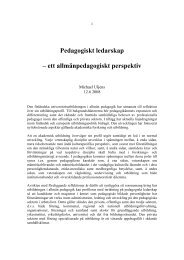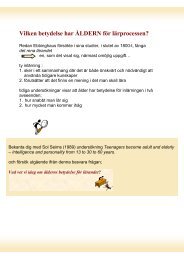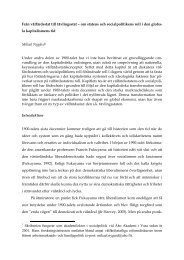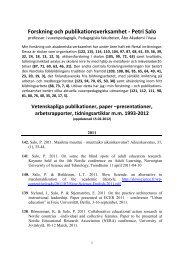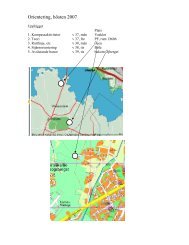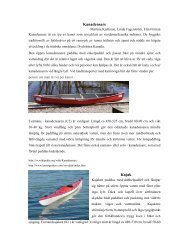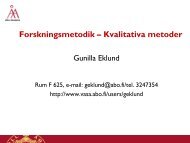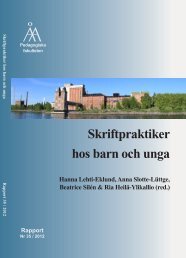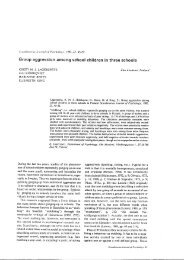Drama Boreale - Åbo Akademi
Drama Boreale - Åbo Akademi
Drama Boreale - Åbo Akademi
Create successful ePaper yourself
Turn your PDF publications into a flip-book with our unique Google optimized e-Paper software.
eality. The most broadly-based category of learning, where learning is seen as a<br />
personal change, can receive impulses from drama work. The results show that process<br />
drama is a suitable working method, when the purpose of teaching is understanding, the<br />
discovering of new viewpoints or the extending of learning beyond the learning<br />
situation in order to deal with universal or ontological questions. By means of drama<br />
one is able to find new viewpoints, understand different ideas and develop a personal<br />
stance on the theme being investigated. Thematic study, which is part of process drama,<br />
creates the pre-conditions for realizing the artistic work that accompanies it: for learning<br />
through and learning in drama. The factors connected to the learning potential of<br />
process drama are illustrated in the following figure.<br />
Process drama and adult experiential learning<br />
The understanding of adult experiential learning is not too well-known and is most<br />
important in the practical drama work, where the interaction happens in a special way.<br />
For this reason and for promoting field work in drama, the valuable visions from Anita<br />
Malinen’s doctoral dissertation (2000) are largely referred in the following lines.<br />
According to Malinen, the starting point for learning is personal experiential knowing,<br />
where first-order experiences intertwine with personal knowledge. This knowledge has<br />
a rigid part and an elastic part. Using concepts created by Lakatos, Malinen believes that<br />
this personal experiential knowing contains a rigid part, a ‘hard core’, which includes<br />
the most basic opinions of the learner. Around this hard core there is a ‘protective belt’<br />
which contains more elastic ideas. The experiential learning of an adult is a<br />
reconstructive process, which corrects defects in personal experiential knowing. The<br />
process may affect either the hard core or the protective belt, which from the viewpoint<br />
of the learner is a safe area seen.<br />
The second category of experience is the ‘second order experience’, which initiates the<br />
reconstruction process. Experiential learning in drama is leaning through drama (or with<br />
the help of it), because the known becomes unknown. <strong>Drama</strong> work is a source of such<br />
second order experiences, both with experiences born out of actual dramatic activity and<br />
50


